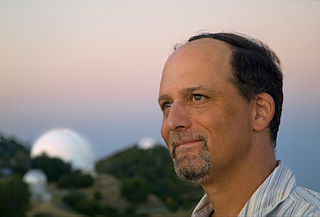A Quote by Percy Bysshe Shelley
Of Planets, struggling fierce towards heaven's free wilderness.
Quote Topics
Related Quotes
Fighting for one's freedom, struggling towards being free, is like struggling to be a poet or a good Christian or a good Jew or a good Muslim or good Zen Buddhist. You work all day long and achieve some kind of level of success by nightfall, go to sleep and wake up the next morning with the job still to be done. So you start all over again.
Free, free! what a glorious ring to the word. Free! the bitter heart-struggle was over. Free! the soul could go out to heaven and to God with no chains to clog its flight or pull it down. Free! the earth wore a brighter look, and the very stars seemed to sing with joy. Yes, free! free by the laws of man and the smile of God-and Heaven bless them who made me so!
When ever the light of civilization faces upon you with a blighting power...go to the wilderness...Dull business routine, the fierce passions of the marketplace, the perils of envious cities became but a memory...The wilderness will take hold of you. It will give you good red blood; it will turn you from a weakling into a man...You will soon behold all with a peaceful soul.
We can have wilderness without freedom; we can have wilderness without human life at all, but we cannot have freedom without wilderness, we cannot have freedom without leagues of open space beyond the cities, where boys and girls, men and women, can live at least part of their lives under no control but their own desires and abilities, free from any and all direct administration by their fellow men.
From my childhood it has been my conviction that men would reach the planets in my lifetime . . . this conviction . . . rests on two beliefs, one scientific and one political: (1) there are more things in heaven and earth than are dreamed of in our present-day science. And we shall only find out what they are if we go out and look for them. (2) it is in the long run essential to the growth of any new and high civilization that small groups of people can escape from their neighbors and from their governments, to go and live as they please in the wilderness.
He wondered how he could ever have thought of the planets, even of the Earth, as islands of life and reality floating in a deadly void. Now with a certainty which never after deserted him, he saw the planets - as mere holes or gaps in the living heaven - excluded and rejected wastes of heavy matter and murky air, formed not by addition to, but by subtraction from, the surrounding brightness.
My belief in free competitive economic enterprise does not rest solely or even mainly on arguments of economic efficiency, though, heaven knows, these are cogent enough. It rests essentially on the view that the free market is the only safe way of ensuring that productive effort is directed towards supplying what individuals actually want, and in a way which secures the dignity and independence of the worker.
A major puzzle for which nobody has an answer is this: is there some size at which the planets change their nature from water-rich planets like Neptune, to rocky planets like the Earth? We have found two planets that are the size of the Earth in radius, but they are very close to their host star, so water on the surface would evaporate away.
What the Indians are saying is that they are recognizing the right of wilderness to be wilderness. Wilderness is not an extension of human need or of human justification. It is itself and it is inviolate, itself. This does not mean that, therefore, we become separated from it, because we don't. We stay connected if, once in our lives, we learn exactly what that connection is between our heart, our womb, our mind, and wilderness. And when each of us has her wilderness within her, we can be together in a balanced kind of way. The forever, we have that within us.






































